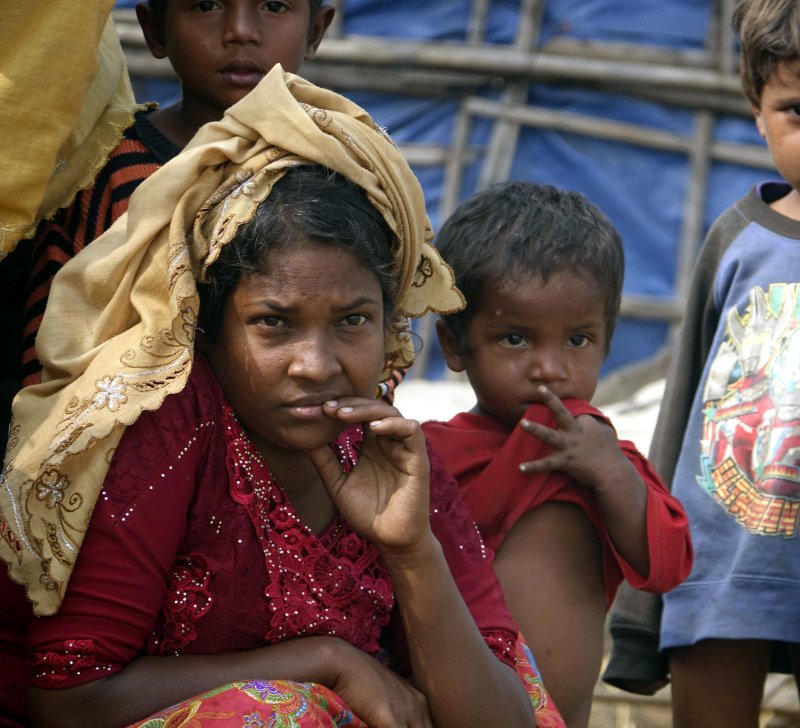A new report says anti-Rohingya violence in Myanmar was genocide. Rohingya people are shown sitting near their makeshift house in Maungdaw township, Rakhine State, western Myanmar, earlier this year. File Photo by Nyunt Win/EPA-EFE
July 19 (UPI) -- Myanmar authorities' plotting ahead of an uprising last August and subsequent violence amounted to genocide against the country's Rohingya minority, according to a new report from international human rights group Fortify Rights.
After Rohingya insurgents attacked police outposts on August 25, Myanmar army officers killed 77 insurgents, 12 security officers and six civilians, state media reported, and thousands fled from the violence and attempted to enter neighboring Bangladesh.
Fortify Rights, however, disputes that narrative. In its report, the group says it uncovered a "sinister subplot."
"Myanmar authorities made extensive and systematic preparations for the commission of mass
atrocity crimes against indigenous Rohingya civilians during the weeks and months before Rohingya-militant attacks on August 25, 2017," the report stated.
The Rohingya, a group of ethnic Muslims largely living in Myanmar's Rakhine state, are a religious minority in Myanmar, but are denied citizenship and an ethnic minority status.
Within a few weeks of the uprising, conservative estimates from Doctors without Borders show at least 6,700 Rohingya were killed in the violence, including at least 730 children under the age of 5, and hundreds of thousands of Rohingya had fled.
Fortify Rights said Myanmar's pre-uprising preparations included systematically disarming Rohingya by confiscating self-defense items, systematically tearing down fences around homes, imposing a Muslim-only curfew, suspending humanitarian aid and access to Rohingya and building up a military presence.
"The Myanmar military would like the world to believe that it was fighting terrorism in Rakhine State and that this was a spontaneous response to the attacks of ARSA," Matthew Smith, the CEO of Fortify Rights, told Al Jazeera, referring to the Arkan Rohingya Salvation Army group.
Smith's organization noted the United Nations Office on Genocide Prevention has found that genocide and crimes against humanity are "processes that take time to plan, coordinate and implement."
U.S. officials have characterized the 2017 crackdown by military authorities as ethnic cleansing.















